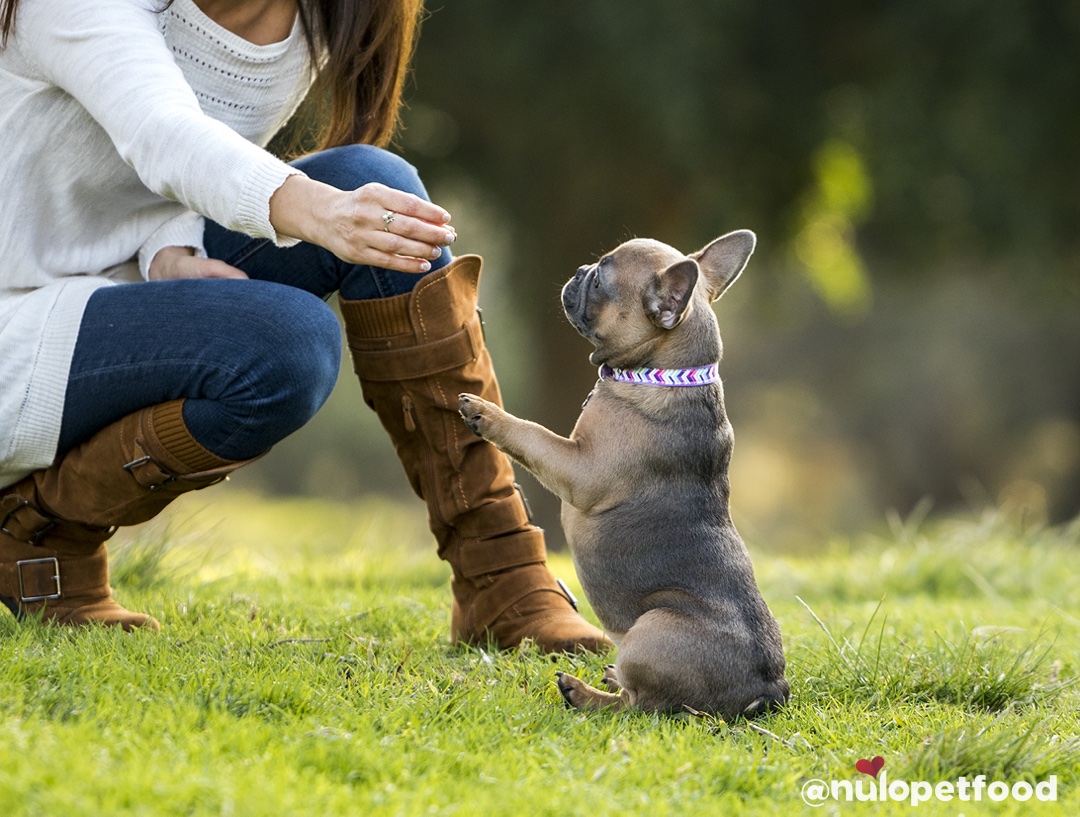Are vegetarian and vegan diets good for dogs and cats?

We may treat our pets like family, however it’s important to feed them based on their biological needs. To learn more, Nulo spoke with their resident veterinarian Dr. Abby Huggins about plant based diets and our pets.
Are vegetarian and vegan diets healthy for my cat and dog?
For cats, it is an easy decision. Dogs, however, require a more nuanced answer.
Much of the response is based on the evolutionary biology and natural history of these species – in particular, their respective degree of domestication. It is theorized that dogs began their domestication journey from gray wolves as they ate the scraps of left-over human meals. Those that could digest the starches in those left-over scraps were thereby better able to survive in proximity to humans.
Does that mean my dog can eat a vegan or vegetarian diet?
It’s very nuanced, but bottom line: just because they CAN doesn’t mean they SHOULD.
Due to a long history of domestication, dogs have a heightened ability to use and digest starches as a form of energy compared to their wolf ancestors. However, the ability to digest certain food sources does not replace the need for animal-based sources of meat protein as a key component in a healthy diet.
High quality animal-source proteins contain all the essential amino acids a dog requires; many plant-based proteins do not. Additionally, dogs have a shorter GI tract than humans and herbivores, meaning they have less time to break down and efficiently absorb nutrients from their food. With a higher acid content in the stomach to digest bones and raw meat, dogs tend to do better on foods that are more readily broken down, but can struggle with more complex foods such as plants. Ultimately, while dogs have the capacity to digest plants, utilizing solely plant-based proteins may not be the healthiest long-term diet for most dogs.
High quality animal-source proteins contain all the essential amino acids a dog requires; many plant-based proteins do not.
What about cats? Can cats live a healthy, happy life without meat?
Vegan and vegetarian diets lack preformed vitamin A, taurine, and other specific amino acids, which can only be found in animal-meat proteins. Even when these nutrients are added as supplements to their food, they are unlikely to meet the dietary requirements of cats.
Bottom line, cats require meat-based protein to thrive.
Cats cannot be vegans or vegetarians — they are indisputably, obligate carnivores.
Should Pets Eat Like their Owners?
Pets are members of the family. It is only natural, then, to want to offer them the healthiest options, so they can live their best lives. Many times, we deem what is best for us, must be best for them.
Fad Diets Don’t work
However, the opinions on what constitutes the healthiest diet for humans are wide and often conflicting. Sugar-free, ketogenic, Whole30, intermittent fasting, paleo are all recent dietary trends. Frequently motivated with an initial goal of weight-loss, people adopt rather restrictive diets to feel better, look better, and perform better.
Vegetarianism and veganism (the avoidance of all animal-based foods), however, often stem from a deeper motivation beyond one’s own health, including ethical concerns for animal welfare, environmental impacts, and religious dietary restrictions.
Subsequently, calling either of these dietary preferences a trend undermines the motivation, as it is a lifestyle choice for many. Stemming from a desire to feed their pets a similar diet to their own or to avoid violating their own dietary rules, many pet owners seek vegetarian and vegan pet food diets for their dogs and cats.
Food is an emotional choice, but, ultimately, it must be a scientific choice, especially when we are choosing that food for our beloved pets. Even though our pets are family, they are not little humans. Their dietary choices need to reflect their unique anatomy and physiology. A diet that contains high-quality animal source proteins most closely aligns with their nutritional requirements.
So, how can a vegetarian or a vegan find a balance between his values and the nutritional needs of his cat and dog?
In life, we are often confronted with situations where we must find space for compromise. While we may not always be able to attain absolutes, we can still make choices that align with our beliefs and our goals. Nulo has developed a network of family farmers in the central U.S. that focus on free-range beef, chicken, and turkey, and sustainable wild caught fish that adhere to the requirements of the Monterey Bay Seafood Watch Program. Nulo foods are produced in USDA, FDA, and AFFCO approved facilities in Kansas, Nebraska, and North Dakota, equating decreased pollution from fossil fuel usage for transportation. Through responsible and compassionate choices, Nulo offers not only high-performance, nutritionally-rich pet foods, but foods that are made with a conscious effort to minimize environmental impact. #HealthierTogether






